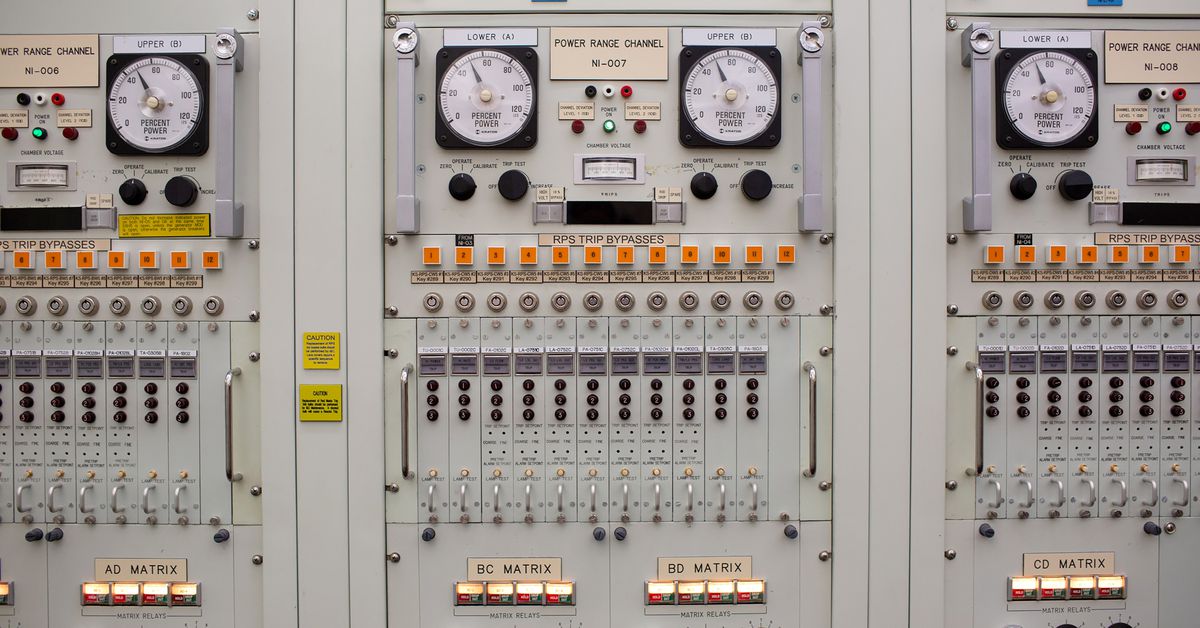For the first time, a shuttered nuclear power plant in the US could reopen thanks to federal support. The Department of Energy (DOE) announced a $1.52 billion loan to help restore a nuclear generating station in Covert Township, Michigan.
Although it’s still a controversial option among environmental advocates, nuclear energy could be on the verge of a renaissance as an alternative to fossil fuels. Nuclear power plants are already the biggest source of carbon pollution-free energy in the US, and can fill in for renewables when solar and wind power wane.
“It’s a powerful clean energy comeback story.”
“It’s a powerful clean energy comeback story,” White House National Climate Advisor Ali Zaidi said in a press release yesterday.
The DOE gave the loan to energy technology company Holtec to reopen the Palisades nuclear power plant that shut down in 2022. As part of its plan exit the nuclear power business, utility company Entergy sold the site to Holtec, which initially sought to decommission the five-decade-old plant.
With the Biden administration looking to meet its climate goals with help from nuclear energy and electricity demand rising in the US from data centers and manufacturing, the private sector has gotten more bullish on nuclear energy. Microsoft inked a deal in September to buy energy from the shuttered Three Mile Island nuclear power plant if it manages to restart by 2028.
Holtec is on a faster timeline, aiming to get Palisades back online by the end of next year. Once the 800-megawatt plant is up and running again, it should be able to generate enough electricity for 800,000 homes. Planning to stay in operation until at least 2051, the plant is expected to create up to 600 union jobs. If successful, it would be the first recommissioning of a retired nuclear power plant in the US. Holtec says the restart “lays the groundwork” for its larger nuclear energy ambitions of deploying next-generation small modular reactors in Michigan.
For Palisades to start up again, Holtec will first have to get approval from the Nuclear Regulatory Commission. And nuclear power plant projects have a history of facing construction delays and soaring costs. It’s one of the factors that has held the industry back for years. On top of that, nuclear energy still faces opposition from environmental justice advocates concerned about the risks that come with mining uranium and storing nuclear waste.
Last year, a coalition of 115 organizations sent a letter to Energy Secretary Jennifer Granholm urging the DOE to reject funding requests from Holtec. “Restored operations at this atomic reactor would further impact and put at risk ecological and human health, impact to culturally significant sites in the vicinity, including potential burial sites,” Tom BK Goldtooth, Executive Director of the Indigenous Environmental Network said in a press release at the time.
In its announcement yesterday, the DOE claimed that the Palisades project would support the Biden administration’s environmental justice initiative of ensuring that 40 percent of the “benefits” from federal clean energy investments flow into marginalized communities. It says the plant is located in a “disadvantaged community” where residents pay higher energy costs than 97 percent of other communities in the US.
Along with the DOE’s loan to Holtec, the Department of Agriculture also announced $1.3 billion in grants to two rural electric cooperatives to lower the cost of electricity from the Palisades plant and renewable energy sources. Money for the grants and loan come from the Inflation Reduction Act, the Biden administration’s big spending package on climate action and clean energy.

